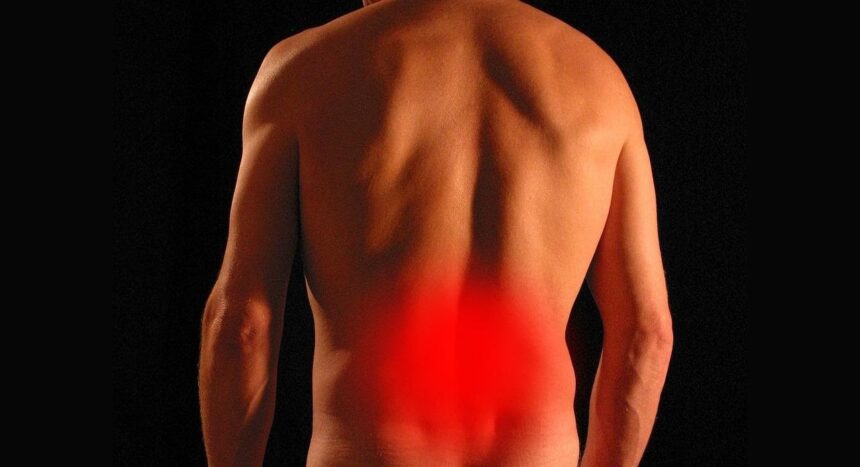The human spine is made out of 33 individual bones, called vertebrae, which interlock with each other. Between them, soft cartilage discs filled with fluid cushion the vertebrae when we bend and flex our bodies and protect the spine. Think of them like natural shock absorbers. But the natural aging process, combined with a series of lifestyle factors, can cause these discs to wear and tear or change their position, which triggers spinal health issues. The most common ones are bulging discs and herniated discs. Many patients assume that the two are one and the same, but there are actually many differences between them. If you have been diagnosed with a herniated or bulging disc, following your doctor’s advice and recommended treatment is key in recovering your mobility and spine health. But, if you’re not sure about the difference between a bulging disc and a herniated disc and how each one affects your spine health, this guide will help you understand their causes, symptoms, and possible treatment options.
What is a bulging disc?
A bulging disc occurs when one of the discs between your vertebrae slips from its normal position and protrudes outward by a few millimeters. A bulging disc is not a herniation; it’s significantly less severe, and many times patients don’t know they have it.
Causes
The most common reason why people get bulging discs is the slow degeneration caused by the natural aging process. However, the fact that younger people don’t have them is a myth; a bulging disc may well occur in your 30s or 40s, due to causes such as:
- A sedentary lifestyle
- Smoking
- Bad posture
- Trauma to the spine, caused by an accident or continuous strain
- Obesity
- Heavy lifting or sports that involve high contact
Symptoms
Bulging discs develop over time, and, unlike herniated disc, they often don’t cause any pain at all. This is why the issue usually goes unnoticed until it becomes a herniation or until the protrusion presses on the nerves, triggering these sensations:
- Headaches
- Numbness
- Tingling
- Weakness in the leg
- Pain in the thigh or buttocks
- Difficulty walking
What is a herniated disc?
When talking about a bulging disc vs. herniated disc, the most important difference is that a herniated disc occurs when there’s a crack in the disc’s outer layer, and the jelly-like nucleus protrudes out of the disc. Herniated discs frequently occur in the lumbar region, where they cause irritation of the nerve roots and painful inflammation.
Causes
Like bulging discs, herniated discs are often a side-effect of natural degeneration; as we age, the discs begin to shrink, and that makes them more prone to herniation. However, several factors can increase the risk of a herniated disk:
- Gender: men are more likely than women to have a herniated disk
- Smoking
- Being overweight
- Sedentary lifestyle
- Long periods of sitting (such as in the case of drivers and office workers
- Physically demanding jobs that require a lot of heavy lifting
- Not doing weight lifting exercises correctly
Symptoms
Unlike bulging discs, which you can have for years without knowing, herniated discs have more obvious and unpleasant symptoms:
- Sciatica. This is a specific type of intense, shooting pain that extends from the lower back down the leg
- Numbness and weakness in one leg/foot
- When the herniation is severe, patients may even experience loss of bladder control
Treatment
After evaluating your medical history and conducting a series of examinations that may include X-rays, CT, and MRI scans, your doctor will tell you if you have a bulging disc or herniated disc, and what treatment paths you can pursue, depending on the severity of the spinal issue.
Bulging discs are generally easier to treat non-invasively, and symptom management often revolves around healthy lifestyle changes:
- Patients with obesity may have to go on a weight reduction plan to reduce the pressure on the discs
- Eliminating risks factors such as smoking or a sedentary lifestyle
- Physical therapy may strengthen muscles and improve mobility
- Pain can be managed with heating pads, ice packs, or gentle massage. In the case of moderate pain, anti-inflammatory medication may be recommended.
Since they haven’t reached the stage of herniation yet, bulging discs are easier to treat, and there have even been cases when they went away after a few weeks, especially in younger patients. If the issue is life-threatening, the doctor may recommend emergency surgery, but such cases are highly uncommon and, in general, bulging discs are manageable.
With herniated discs, treatment can be a bit lengthier and more complex. At first, your doctor will try to solve the problem in a non-invasive way, through non-surgical treatment:
- Several days of bed rest
- Avoiding long periods of standing
- Slow and controlled physical activity
- Anti-inflammatory medication
- Physical therapy
After following this non-surgical treatment, most patients are free of symptoms within three to four months. If the symptoms don’t improve, and patients continue to experience intense pain, muscle weakness, or loss of bladder control, the specialist will recommend surgical treatment. Patients tend to fear surgery, thinking that the recovery time will be unreasonably long or that they’ll never get back to their normal lives, but, in the past years, there have been many innovations in the field. Except for the more severe cases where the herniation occurs at multiple levels, and the surgical procedure is more extensive, disc herniations can be treated through microscopic spine surgeries, which are minimally invasive.
Can bulging discs and herniated discs be prevented?
Although we cannot prevent the body’s natural aging process, or control genetic factors, we can try to control risk factors and live a healthy life to prevent bulging and herniated discs. Smoking, for example, which poses many health threats, is the first bad habit you should try to give up. Other things you can do to lower your risks are to avoid a sedentary lifestyle, manage your weight, and, if your job involves a lot of sitting down, getting up from your desk from time to time. If you do weight training, make sure you do it under your trainer’s supervision to avoid the risk of trauma to the spine.








